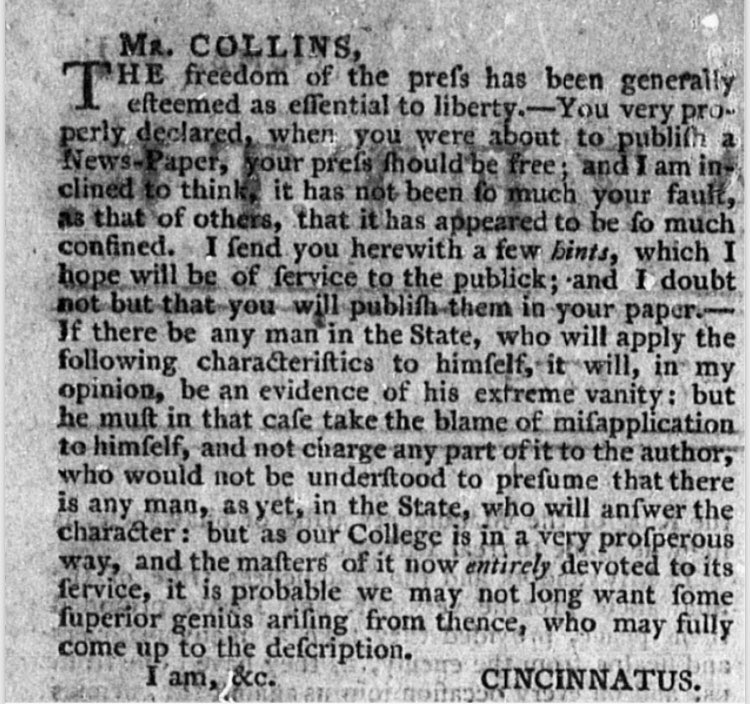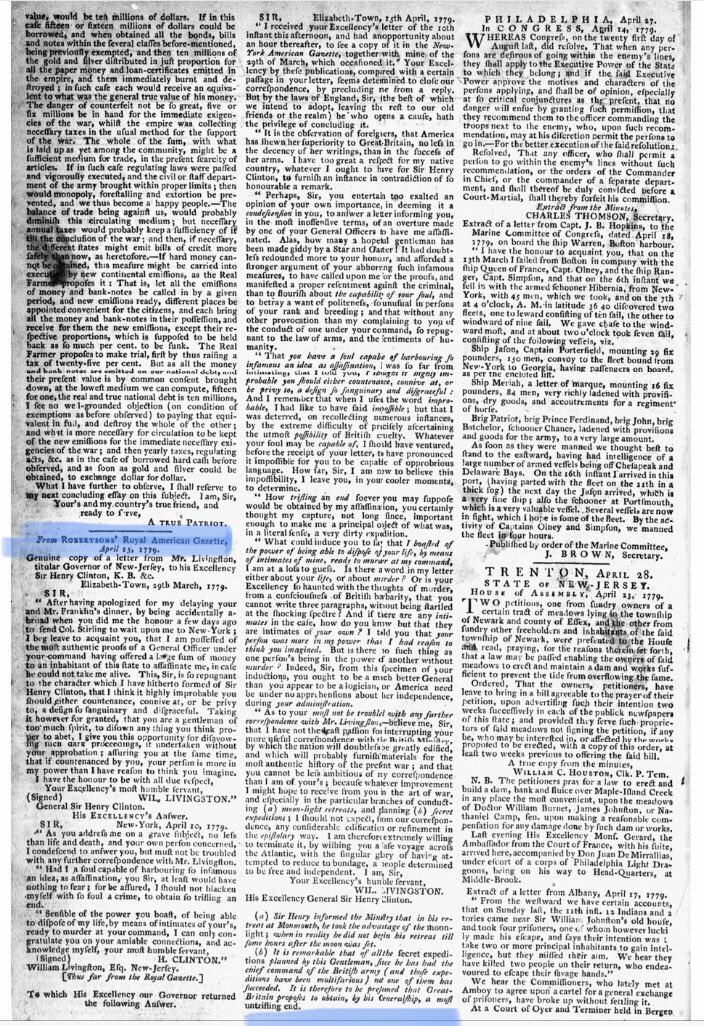On this day in 1723, William Livingston was born in Albany, New York. He played important and influential roles over the course of his life as an established lawyer in New York, journalist, and later as a revolutionary political leader.
Upon his move to New Jersey in the 1770& #39;s, he was a Delegate to the First and Second Continental Congress, appointed Brigadier General of the New Jersey Militia and elected the first governor of New Jersey succeeding Royal Governor William Franklin.
Additionally, Livingston helped establish the New Jersey Gazette with Quaker Printer, Isaac Collins, in 1777. Livingston published numerous essays penned under a variety of pseudonyms.
He utilized the newspaper as a vehicle to counter misinformation in Tory Press and to garnish colonial support during the American Revolution.
One example of WL’s anonymous essays appeared in an October 1779 issue of The New Jersey Gazette. Signed under the pen name “Cincinnatus,” Livingston shared “hints humbly offered to the consideration of the Legislature of New Jersey, in their future choice of Governor.”
“He ought to be a man who never did, who never will, and who never can speak in any publick assembly: for it is as great a shame for a Governor to be able to speak in publick, as it is for a woman to speak in the church. - But, . . .”
“He ought to be a purdigious writer, - that is to say, he ought to be very great in the News- Paper way ; and blessed with a genius somewhat similar to your admirable correspondent Hortentius . . .”
The New Jersey legislature was furious over the publication that they contacted Livingston’s Quaker printer, Isaac Collins, demanding the identity of “Cincinnatus.”
Collins responded, “...under the disagreeable necessity of declining to comply with your orders. In any other case not incompatible with good conscience or the welfare of my country, I shall think myself happy in having it in my power to oblige you.”
Throughout the course of the war, Livingston feared a “British- sponsored assassination plot” against him. In March 1779, British General Sir Henry Clinton sent a dispatch to Liberty Hall to capture the “rebel Governor.”
Upon hearing that he was the target of another “wicked design,” WL wrote to Clinton on March 29, 1779 stating: “Sir, After having apologized for my delaying your and Mr. Franklin’s dinner by being accidently abroad...
when you did me the honor a few days ago to send Col. Stirling to wait upon me to New York, I beg leave to acquaint you that I am possessed of the most authentic proofs...

 Read on Twitter
Read on Twitter







